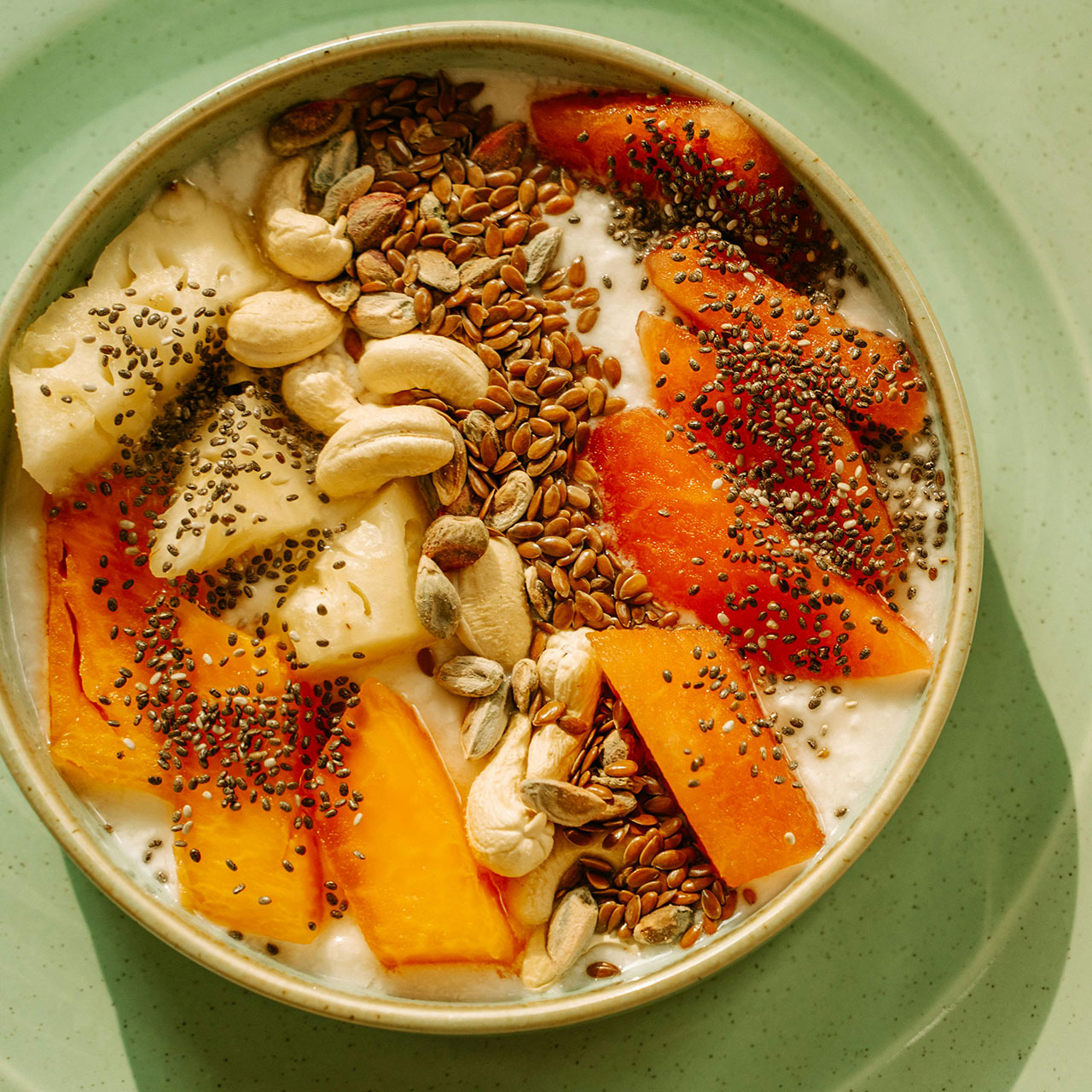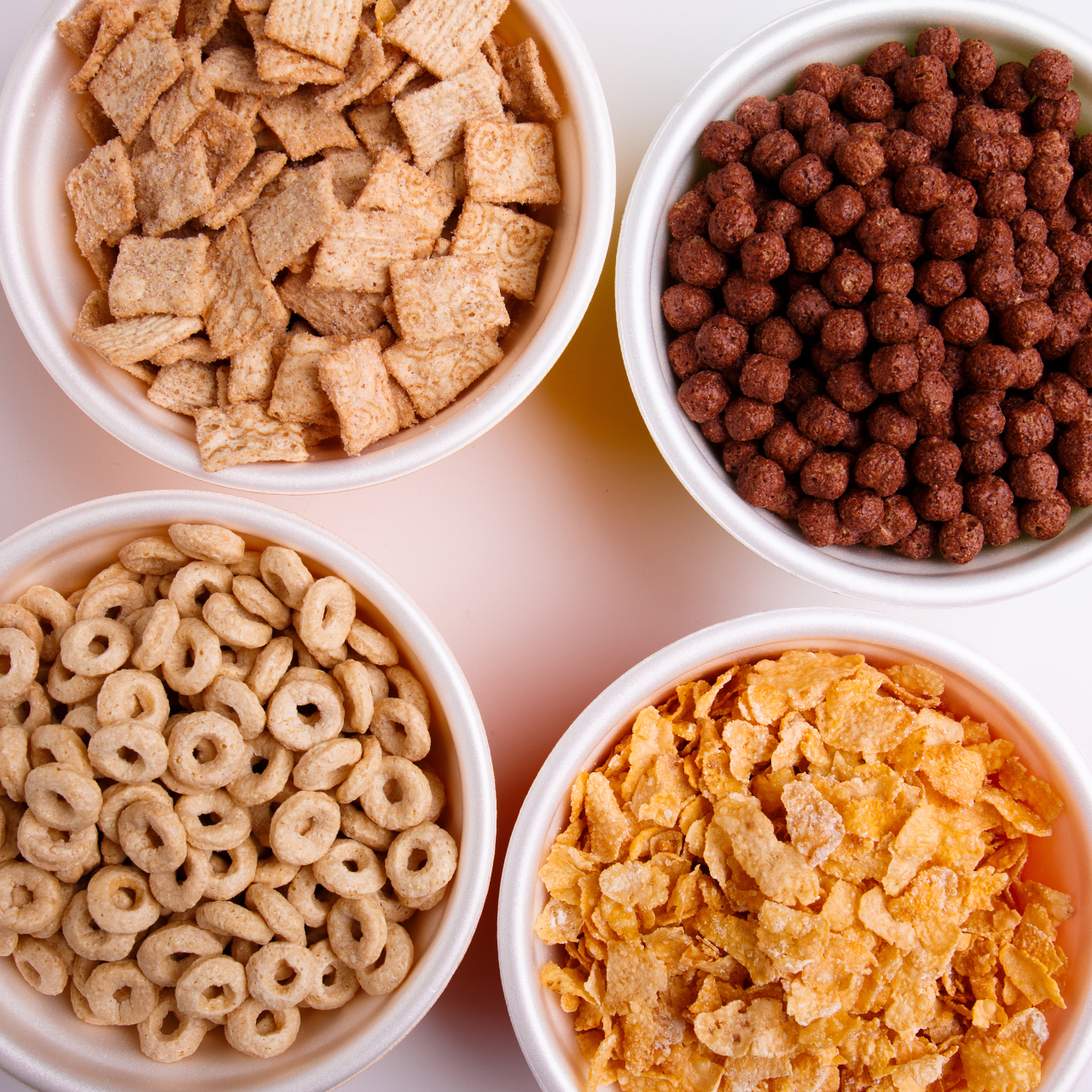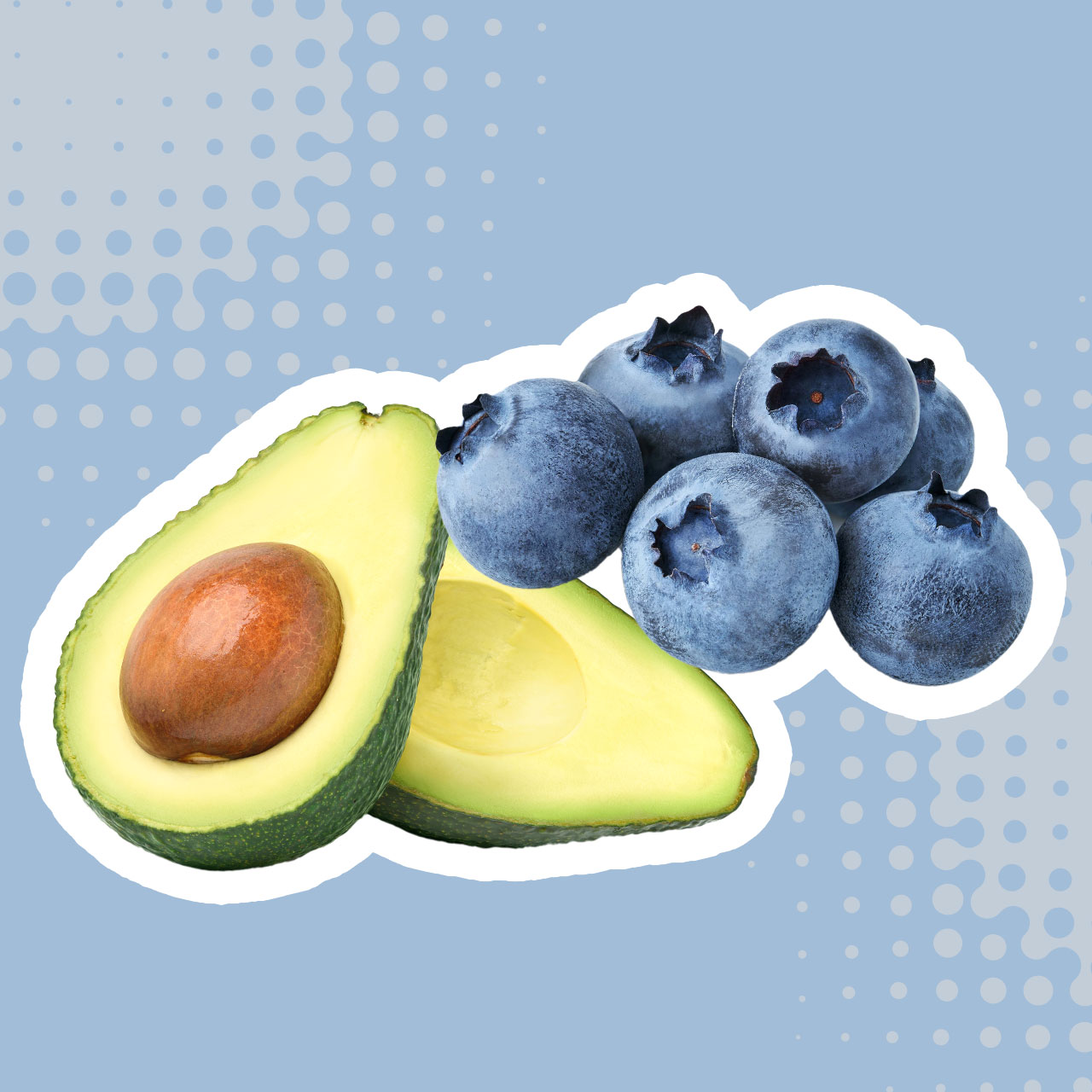Many of us start the day with a go-to morning beverage, whether that’s water, coffee, tea, juice, or anything else you may choose to sip on as you get ready for the day ahead. And just like the food you eat for breakfast, it’s important to remember that your beverages of choice could significantly impact how the rest of your day unfolds. For example, your daily ritual could be inadvertently contributing to an unwelcome and uncomfortable guest—gas and bloating.
To shed some light on a few of the biggest offenders out there, we spoke to registered nurse Lauren Thayer. She told us that protein shakes and fruit juice are two morning beverages you should steer clear of if you want to avoid gas and bloating throughout the day. Learn more about the risks of each below.

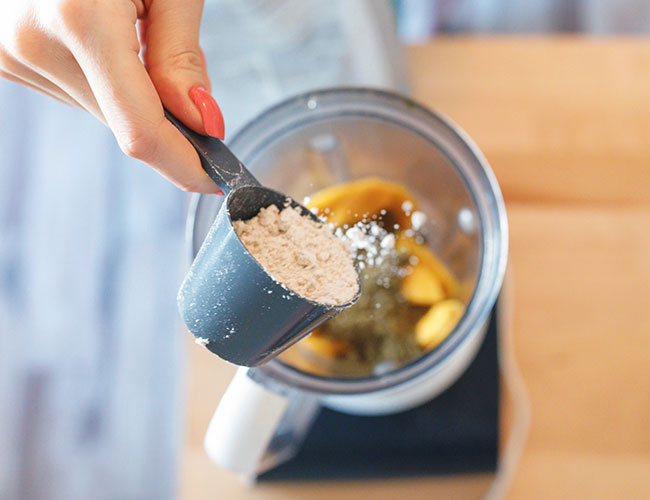
1. Protein Shakes
While protein shakes are a popular choice for those looking to boost their protein intake and support muscle growth, it's essential to be mindful of potential side effects, such as gas, bloating, and inflammation. "Protein shakes can be hard on your stomach for many reasons," Thayer says. "It may be the whey in them, which is a byproduct of milk, or the sugar substitutes that are used in the shakes." This is just one potential downside to artificial sweeteners, in addition to inflammation.
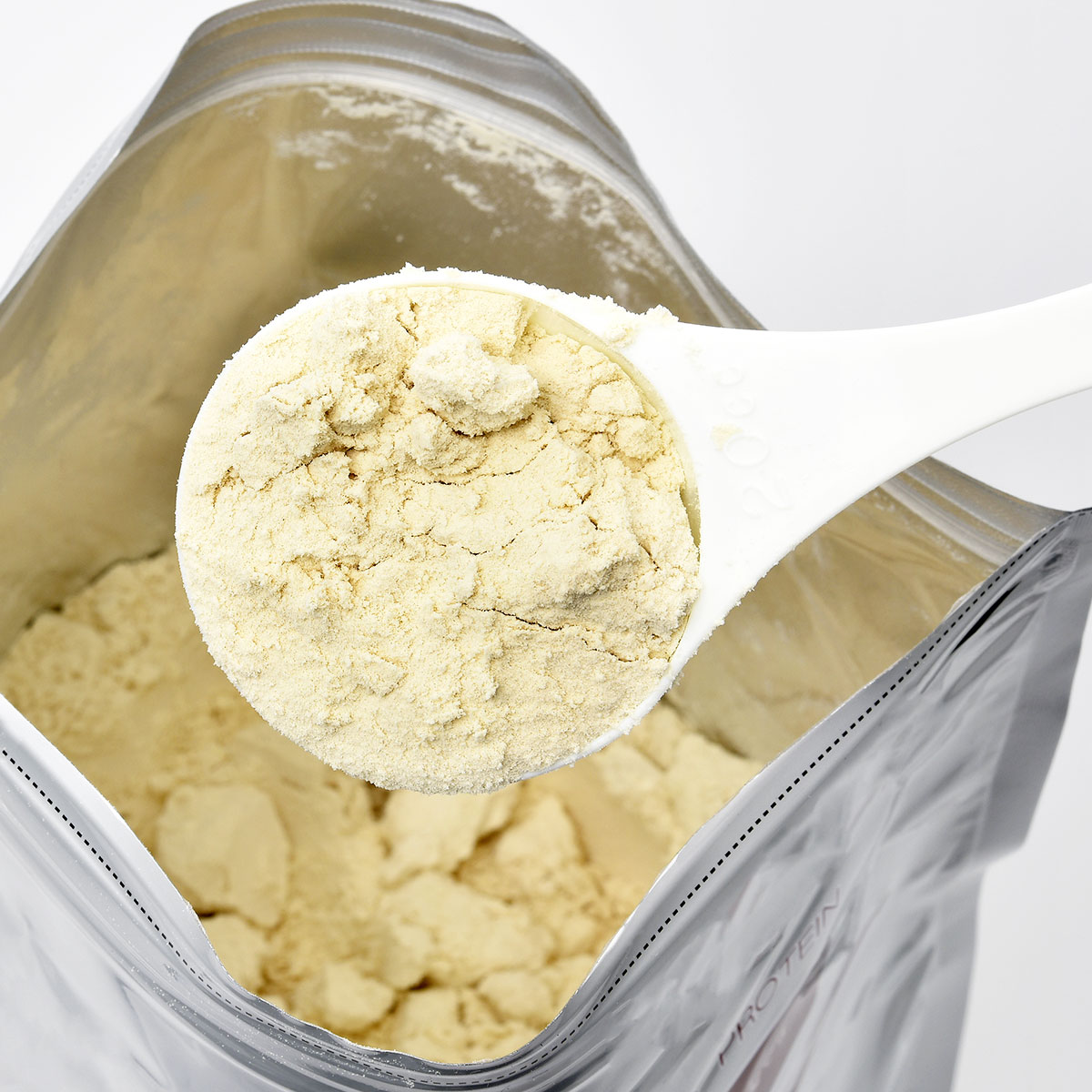
When you consume a lot of protein powder too quickly, this could overwhelm the digestive system, leading to gas production and bloating. In order to avoid this, you may consider choosing protein powders with simpler ingredients, opting for plant-based alternatives, or adjusting the serving size to suit your digestive tolerance.
As with any dietary change, it's always a good idea to speak to a healthcare professional or a nutritionist to find the best protein supplement that aligns with individual needs and digestive sensitivities.

2. Fruit Juice
Although they may seem healthy on the surface, since fruit itself is healthy, there are a few reasons you should avoid drinking fruit juice for your health. For one, as Thayer points out, it could take a toll on your digestive system. "Store bought fruit juice is typically made of fruit concentrate, sugar, added flavors, and water and not any actual fruit," she says. "These ingredients can all lead to excess gas, bloating, and inflammation."
Many commercially available fruit juices are high in fructose, a natural sugar found in fruits. For some people, consuming large amounts of this sugar can be challenging for the digestive system to absorb efficiently. This can lead to fermentation in the gut, resulting in the production of gas and bloating.
Inflammation is another major downside to excessive sugar intake.
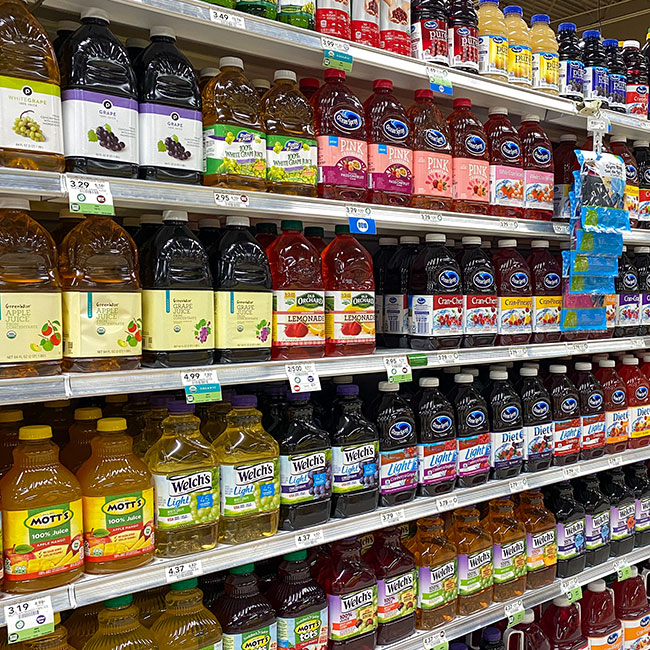
Additionally, some fruit juices may lack the fiber that comes with whole fruits, which helps regulate digestion. When you remove the fiber, the natural sugars in the juice can be absorbed more quickly, potentially causing a spike in blood sugar levels and digestive discomfort.
Moderation is key. If you want to reduce your risk of digestive issues, you may want to dilute juices with water, choose freshly squeezed options, or opt for whole fruits to enjoy the nutritional benefits without the unwanted side effects. Another good idea is to switch to homemade green juice—there are plenty of great ingredients to choose from! And, of course, you should always consult with a healthcare professional if persistent issues arise.
READ MORE: The Best Morning Habits To Beat Bloating And Inflammation, According To Doctors















